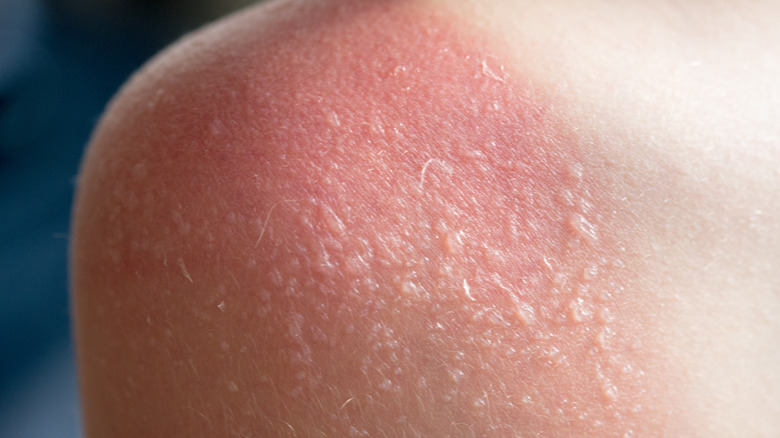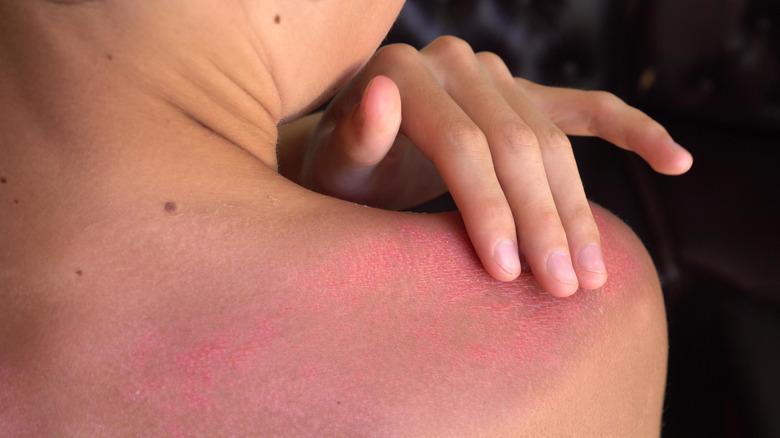If You Get Sunburn Blisters, Here's What You Should Do
Sun blisters are small bumps filled with fluid that can appear on the skin following a sunburn. According to Verywell Health, a sunburn occurs from too much ultraviolet (UV) ray exposure. Depending on the severity of a sunburn, it can be classified as a first-, second-, or third-degree burn.
First-degree burns are typically mild, while sunburns that leave behind sun blisters are usually second-degree burns. A first-degree burn affects the outside layer of the skin, or epidermis. Second-degree burns affect the epidermis and dermis, the layer of skin beneath the epidermis (via Verywell Health). A third-degree burn is the most severe, with damage to the bones and muscles possibly occurring.
Symptoms of a sunburn will vary depending on how severe one's burn is. A sunburn can happen quickly, leaving behind redness, tenderness, and light peeling, Medical News Today reports. When a burn is severe enough, sunburn blisters will form. These small bumps are typically white or transparent, and the fluid may be pus, blood, serum, lymph, or plasma. The blisters can become itchy and very painful, especially when touched, even by clothes.
Treatment for sunburn blisters
Treating sunburn blisters is similar to taking care of a sunburn. However, there's one important step you should never do with sunburn blisters: pop them. Despite how they look cosmetically, the sunburn blisters are helping your skin heal. Nemour Kids Health reports your skin can become infected if a sunburn blister is popped. The blisters essentially protect your skin from infection.
To help care for them at home, cool the sunburn blisters down by using a cold compress or taking a cool bath or shower. You can also use aloe gel or another type of moisturizer to help soothe your skin, but avoid heavy products such as petroleum jelly.
If you're experiencing any pain with your sunburn, you can opt to take pain medication, like ibuprofen. This will help reduce swelling and any additional discomfort you're experiencing, Healthline reports. Additionally, be sure to drink plenty of water, and always wear sunscreen and take other precautions to stay safe in the sun.
If you have any concerns or questions about your sunburn, reach out to your doctor. In particular, Verywell Health recommends seeking immediate medical attention if blisters cover more than one-fifth of your body or symptoms don't start to improve after two days.


